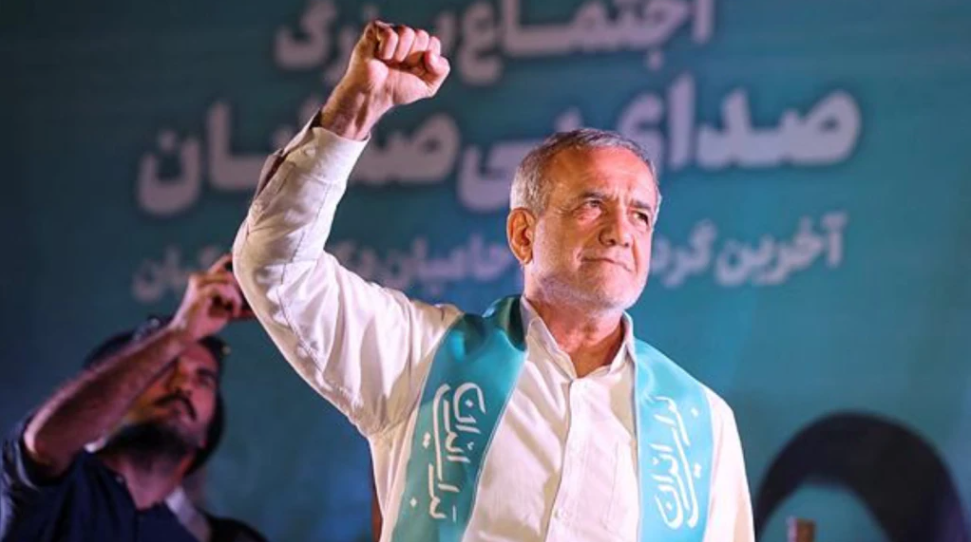
He Wenping, Senior Research Fellow, Charhar Institute and West Asia and Africa Studies Institute of the China Academy of Social Sciences
Jul 26, 2024
The new Iranian president, Masoud Pezeshkian, is a reformer who may represent a change in the country’s national mindset. But he will likely to continue to “look East” in the future, fostering closer economic and trade cooperation with China.
He Wenping, Senior Research Fellow, Charhar Institute and West Asia and Africa Studies Institute of the China Academy of Social Sciences
May 02, 2024
Washington does not want the Israeli-Palestinian conflict to escalate, as that would undermine its “pivot to Asia” strategy. But it doesn’t mind so much when Israel attacks Iran because that serves as a sort of proxy warning to other hostile forces in the Middle East.
Zhong Yin, Research Professor, Research Institute of Global Chinese and Area Studies, Beijing Language and Culture University
Feb 20, 2024
America’s actions that are directly detrimental to China’s interests render China’s cooperation in some regions irrelevant. The good news is that China and the U.S. have agreed to strengthen cooperation. But to ensure concrete results, the U.S. needs to do more.
Jin Liangxiang, Senior Research Fellow, Shanghai Institute of Int'l Studies
Feb 01, 2023
The most likely scenario for a degree of success is that Iran stops short of building a weapon. This would pressure the U.S. while keeping strategic risks under control. But prospects for trouble are looming this year. All parties will have to work for the best while preparing for the worst.
He Wenping, Senior Research Fellow, Charhar Institute and West Asia and Africa Studies Institute of the China Academy of Social Sciences
Oct 03, 2022
The U.S.-Iran rivalry has sunk to new depths after the death in custody of a young woman who was arrested by the Iranian morality police for improperly wearing a head covering. Iran’s stance on the Russia-Ukraine conflict has made matters even worse.
He Wenping, Senior Research Fellow, Charhar Institute and West Asia and Africa Studies Institute of the China Academy of Social Sciences
Mar 08, 2022
The Russia-Ukraine conflict raises uncertainties in negotiations for a renewed Iran nuclear deal. Thorny problems remain. But while there are negatives, there are also opportunities.
Wu Zhenglong, Senior Research Fellow, China Foundation for International Studies
Dec 20, 2021
Both the United States and Iran want the other to make the first move. But even if the Biden administration were to lift sanctions tomorrow, international investors will not return to the Iranian market quickly. They fear a new Republican administration in the U.S. will scuttle the program again.
Wang Fan, Vice President, China Foreign Affairs University
Nov 25, 2021
The United States wants Iran make the first concession — such as ending its uranium enrichment activities. That would be significant for Iran. But because of mistrust, Iran is likely to wait for the U.S. to make the first move.
He Wenping, Senior Research Fellow, Charhar Institute and West Asia and Africa Studies Institute of the China Academy of Social Sciences
Apr 17, 2021
China has its own reasons for strategic cooperation with Iran, and undermining the United States is not one of them. It is true, however, that Iran wants the U.S. to lift all sanctions, and the U.S. has signaled that it may be ready to concede.